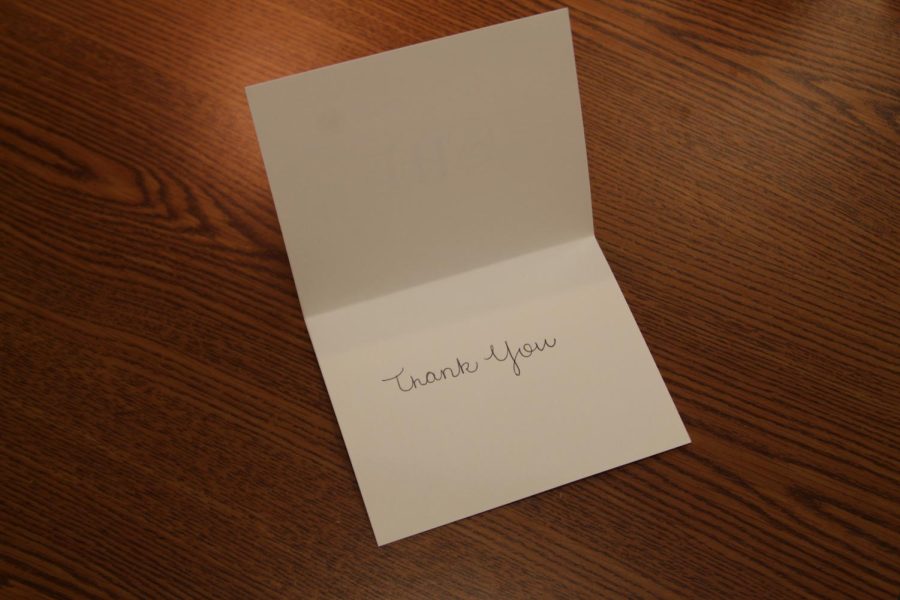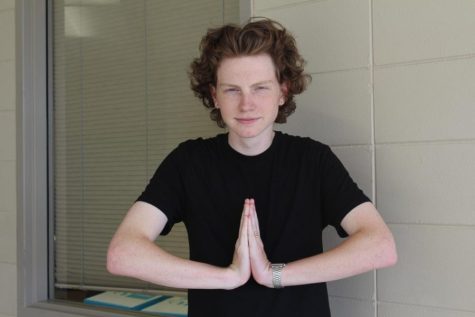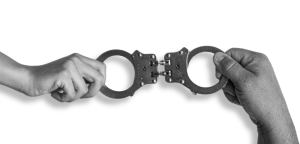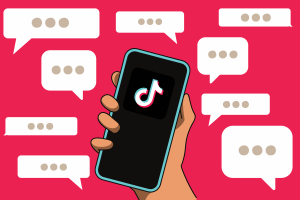Appreciation in the 21st century
“Thank you” is one of the most commonly misused phases in the 21st century.
October 8, 2021
Imagine finding the perfect gift to give to a loved one for their birthday. You know without a doubt that this will not only be the best gift they get that day, but the best gift that they’ll ever receive. Perhaps it’s scratching the limits of your budget or takes a significant amount of time to prepare. You know that you could simply get them a card or take them out for dinner, but you really want this night to be special for them. After sacrificing a part of your time and/or money to acquire it, you wrap it up in a nice bow and patiently wait to present it upon this special person. All you can think about is how they’ll react; will they bounce up and down? Maybe give you a big hug? Perhaps the gift is so incredible that a tear will come to their eye?
It’s finally time. You give the gift to the receiver and watch them open it. They see the gift, turn to you with a smile and say “thanks.” You wait for them to start doing all the things you imagined they’d do in this moment, but it never happens. They begin to open the other’s presents and do the same thing. “What’d I do wrong?” you wonder to yourself. “This was supposed to be the perfect gift and they didn’t care for it at all!”
“How unappreciative.”
There are a countless number of English words that have lost much of their true meaning throughout the years; love means like, hate means dislike, okay means bad, good means alright, but above all else, thank you means nothing. Unless a thank you is said 10 times and followed by tears of joy, it’s simply something we say because we’re supposed to. In grand instances, a thanks is at best underwhelming and at worst, insulting. In smaller instances, a thanks feels empty.
I work at one of the nicer restaurants in Sioux Falls. The clientele is predominantly upper middle class, elderly people that, for the most part, are kind. Part of my job is to bring the food from the kitchen to the tables. When dropping off the food, I would estimate that four out of five times the customers say thank you, most without looking at me. The customers eat their food with no appreciation and I walk back to the kitchen feeling unappreciated. The part that has me down, however, is not that they weren’t truly grateful. It’s that they feel the need to superficially say these two words because it’s what they’ve always done.
When someone goes to a restaurant and receives their food, their brain knows to say thank you to the person who brings it without even consciously thinking it. There is no gratitude in these interactions, and despite popular opinion, there shouldn’t be. I bring the customers their food because I get paid to do it. They get to eat their food because they paid to have it. No one in these situations is doing anything out of the kindness of their heart, and thus there is no need for appreciation.
Before I got this job, I was also one of the people who gave empty thanks to the people I’d pay. When I would buy $4 worth of food at Burger King, I would say thank you to the teenager saving up to buy a used car without meaning it at all. I didn’t appreciate him, but I would still say thank you because “it’s the right thing to do.” In turn, my perception of the term “thank you” has dramatically changed from its original meaning. If I were the giver in my imagined present scenario, I would also be upset if all they said was “thanks.” This is because the word has lost its connection to gratitude. “Thanks” is no more meaningful than “bless you” or “hey, how you doin’?” and it’s because we as a society keep saying thank you in situations where we’re not grateful and where we don’t need to be.
Instead, start saying thank you for the things that really matter. Thank your parents for giving you the life you have. Thank your teachers for helping you after school even when they have other work to do. Thank the people that get nothing in return for their generosity. When we start using thank you in the correct situations and correct ways and stop doing the opposite, we can bring the polite, kind and meaningful phrase back to its original meaning, along with the true sense of gratitude that has been lost over the years.









